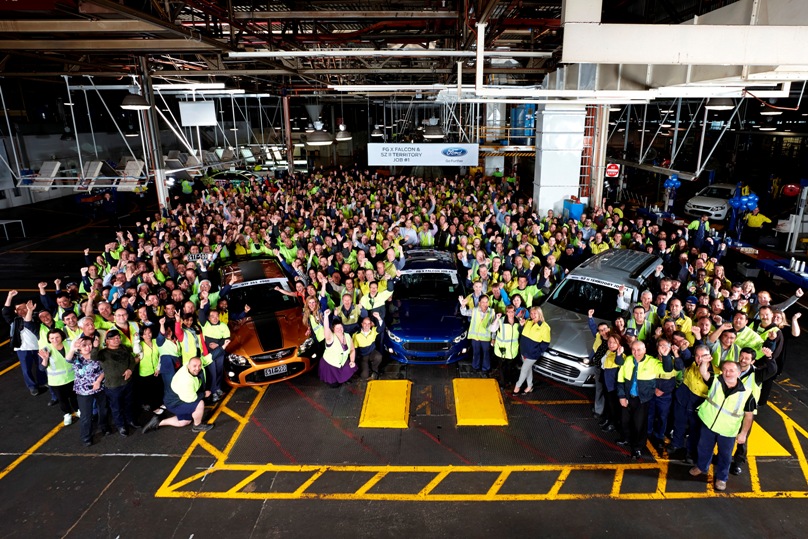
Falling sales have seen the number of Australian-made motor vehicles on our roads decline gradually over a number of years and that trend is about to increase significantly.
Ford Australia shut down local manufacturing on Friday following a move that was announced in May 2013 and which triggered similar decisions to be enacted by Holden in 2017 and Toyota in 2018.
Much has been reported about so-called love affairs that many people have enjoyed with the products from both Ford and Holden, especially each October when those two companies dominated the annual 1000 kilometre race around the Mt Panorama circuit at Bathurst.
While coverage has been revisited from events like the launch of the original utility by Ford in 1934 and the first Holden by the then Prime Minister Ben Chifley in November 1948, some of the best engineered products from the local industry came much later while it was fighting a difficult battle against increased competition from overseas manufacturers.
It’s worth considering the thousands of workers who are being displaced through the changing face of these ventures as they experience a fate that has befallen many others and will affect more people in the future.
Jeff Kennett, a former Premier of Victoria and more recently the long-term chairman of the depression advocacy group beyondblue recently expressed his concern at the growing divide between those with jobs and others who can’t find employment.
“Industry is drying up. Technology replaces jobs, it doesn’t create them,” he told a reporter from The Australian newspaper. “Beyondblue has led me to a position where I am desperately worried about the next five, 10 or 20 years”.
His words reflect broader concerns about the numbers of jobs which are disappearing not only directly from within car making but also from the many different manufacturing plants which have been needed to service vehicle building. And what is branded as “restructuring” is not confined to this industry.

Reductions in workforce levels that are big enough to make news are occurring every few weeks, with a mining offshoot of BHP recently announcing plans to wipe out the jobs of nearly 800 workers.
There was a time when job re-training involved the development of computer skills, and I enjoyed seeing that in action through being involved with the work of the San Miguel Centre at North Richmond. This initiative from the De La Salle Brothers assisted people into new positions when the numbers of computers were increasing – to a point where that growth itself ultimately produced pressures for job cutbacks.
Reduced government subsidies and the recent high value of the Australian dollar combined to erode the economics of local car manufacturing.
Similar changes impacting from practical economics were identified by Pope Leo XIII in his encyclical letter, Rerum Novarum released in 1891 which dealt with what he called a growing “painful apprehension” of these problems.
He expressed concern about “the vast expansion of industrial pursuits and the marvellous discoveries of science, the changed relations between masters and workmen, the enormous fortunes of some few individuals, and the utter poverty of the masses”.

Pope Francis addressed a similar theme at a recent ceremony for the 130th anniversary of an Italian steel plant: “Work has not only the economic objective of profit, but above all a purpose that regards man and his dignity. And if there is no work, this dignity is wounded. Indeed, the unemployed and underemployed risk being relegated to the margins of society, becoming victims of social exclusion.”
Both leaders called for adherence to Christian principles. Francis told his audience to revive the roots of faith: “Faith moves mountains.” Leo wished “to urge upon men of every class, upon the high-placed as well as the lowly, the gospel doctrines of Christian life”.
Communication with God through prayer is invoked more often when we are facing difficulties rather than during better times, so it’s likely to be embraced by people of faith in the vehicle and related industries – and perhaps others should join their intercessions.
Mr Kennett echoed the spirit of words from the popes when he said: “If your community divides socially, you run the risk of the community as a whole failing.”
